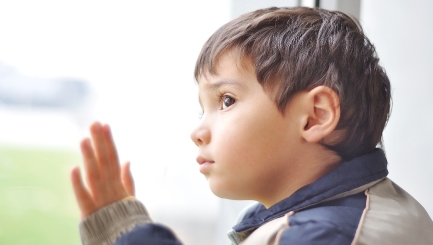Why Have Child Mental Illness Hospitalisations Skyrocketed?
 The rate of children being hospitalised for mental illness has skyrocketed over the last decade, jumping by a whopping 80% for five to 13-year-olds and by 42% for older teens. This is according to a new study that has left many public wellness advocates baffled.
The rate of children being hospitalised for mental illness has skyrocketed over the last decade, jumping by a whopping 80% for five to 13-year-olds and by 42% for older teens. This is according to a new study that has left many public wellness advocates baffled.
Based on data from the National Hospital Discharge Survey, short-term mental health hospital admissions rose from 156 to 283 per 100,000 children per year over the ten-year study period. The rate increased from 683 to 969 per 100,000 in teenagers, 921 to 996 for adults and dropped from 978 to 808 for people 65 and older. This means that the adult and geriatric rates of mental wellbeing have remained relatively steady or even improved, but this is significantly not the case for young people.
According to Joseph C. Blader of Stony Brook State University of New York, whose findings appear in the Archives of General Psychiatry, ‘This occurs despite numerous efforts to make outpatient services for the more vulnerable kids more widely available.’ The statistics are even more alarming when you realise that hospitalisations for episodes of acute mental illness are a last line of defence, and parents would clearly avoid the trauma of having their child admitted to the psych ward if they could.
So why are these cases on the rise? Some experts have suggested that, these days, there is an over-diagnosis of bipolar disorder in young people. However, Blader asserted that, even if this is true, it’s unlikely that over-diagnosis of one disorder could be hiking the rates to that extent. This is due to the fact that hospitalisations are based on whether or not you are considered a danger to yourself or others, not on psychiatric labels, and so as short-term psychiatric hospitalisations are generally due to aggressive, volatile behaviour that leads to assaults on family members or peers; these may or may not lead to enduring psychiatric diagnoses.
What the results do show, then, is that children today, especially younger children, are becoming less able to cope with conflict or stress in constructive ways. They have not developed, or been provided with, the essential skills of emotional self-regulation to handle stressful and interpersonally challenging situations. This has called into question the ability of outpatient community resources, such as child guidance clinics, to keep up with the enormity of the problem.


Comments are closed.